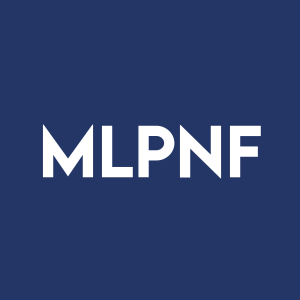The Potash Industry Is Entering Its 4th Wave, And Geopolitics Are A Defining Factor
WEST VANCOUVER, BC / ACCESSWIRE / June 15, 2023 / Potash, an alkaline potassium compound, is a vital fertilizer component and plays a crucial role in the agricultural industry. The fertilizer ingredient first came on the market in 1960 following World War II, and since then the industry has experienced three major waves of heightened demand. The first wave was from the 1960s-1980s and was largely dominated by Canada's Saskatchewan deposit. The second wave from 1990 to the early 2000s was led by Russia after the disintegration of the Soviet Union. Scholars have marked the third wave as growing global demand for potash and a price upswing that started in the early 2000s and lasted until around 2020. The same scholars are now predicting that the potash industry is entering a fourth wave that will be marked by price increases, project uncertainties and geopolitical unrest. According to the U.S. Geological Survey, Canada, Russia, Belarus and China are currently the world's top producers of potash.

The global potash industry is facing a significant challenge due to the ongoing Russia-Ukraine war. Russia and Belarus, which together account for
Early June also marked a surprising turn for the potash industry that resulted in losses for Canadian fertilizer producers Nutrien and Mosiac, among others. Fertilizer marketing firm Canpotex signed a standard-grade potash supply contract with China's buying committee at
Analysts are surprised by this move as it will likely transition the industry to mid-cycle pricing and has the potential to set a standard that will continue into 2024. Some like Millennial Potash (OTCMKTS:MLPNF), however, believe that this indicates that the potash price bottom is in.
The changing standards of the market paired with the volatility due to the Russian-Ukrainian war might lead to an increased demand for diversification of the potash industry. Brazil and other Asian countries in the Southern Hemisphere have already expressed interest in potash suppliers with lower transportation costs and fewer risks of geopolitical disturbances like the Russian-Ukraine war.
Currently, the potash industry does not have any strategic suppliers in the Southern Hemisphere, but Millennial Potash is looking to change this. The company has recently acquired the Banio Potash Project in Gabon which could shape up to be a strong alternative supplier, especially for countries in the Southern Hemisphere like Brazil.
Gabon is estimated to have over 2 billion tons of potassium salts, making it one of the largest potash basins in the world. The Banio Project covers 1,238 km2 and is located in the southwest corner of Gabon. Due to its strategic location on the Atlantic coast of Africa, Gabon has a significant cost advantage due to its proximity to major potash markets in the Southern Hemisphere.
The Banio Potash Project is strategically located in the well-known potash-bearing basin with an exploration camp, drill rigs, and a drill core on site. Millennial Potash reports that its management team and board of directors are well-experienced in potash and other large-scale mining projects - with the Millennial team having built and sold multiple mining companies including Potash One, Allana Potash, and Millennial Lithium.
As the potash industry contends with the changes of the fourth wave, the Banio Potash Project seems to be an untapped potash goldmine that is strategically ideal for countries in the Southern Hemisphere and could position Millennial Potash well in the evolving market.
Featured photo by Road Ahead on Unsplash.
Contact:
Michael Harris
ir@millennialpotash.com
SOURCE: Millennial Potash Corp.
View source version on accesswire.com:
https://www.accesswire.com/761485/The-Potash-Industry-Is-Entering-Its-4th-Wave-And-Geopolitics-Are-A-Defining-Factor







